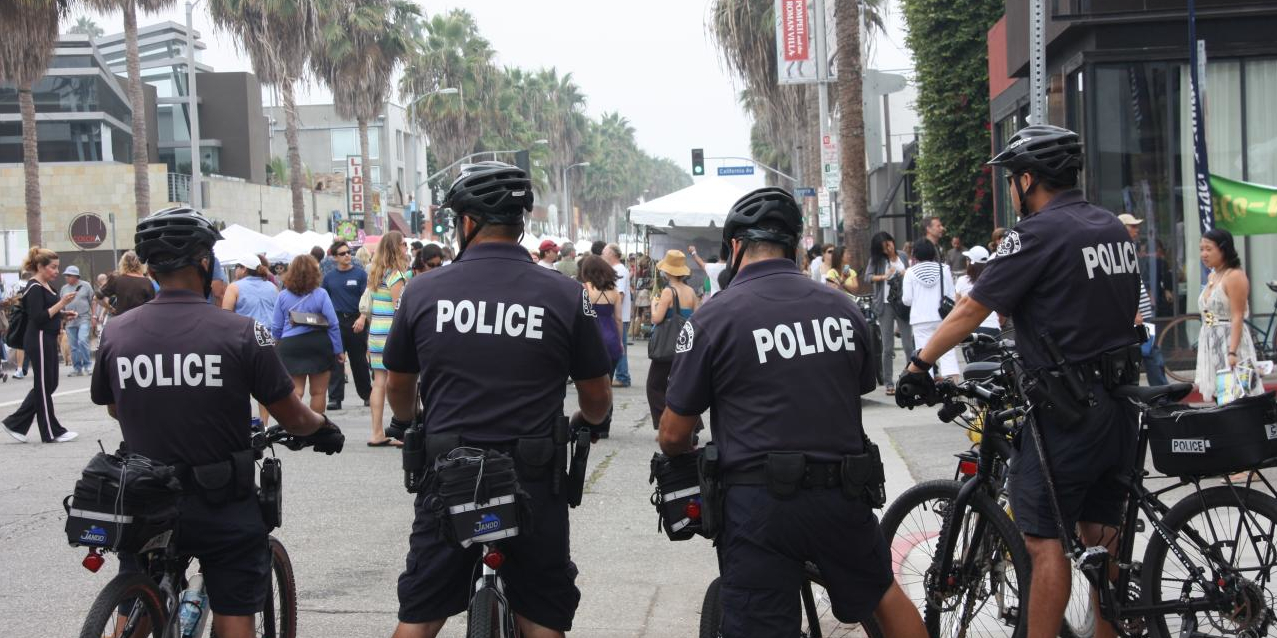By Shaylee Navarro
A program under the Sol Price Center for Social Innovation is collaborating with Microsoft and other organizations for the Criminal Justice Data Initiative to collect data on neighborhood crime in Los Angeles. The Neighborhood Data for Social Change program will study its connection to homelessness, housing, education, economic development and jobs.
This one-year initiative will track criminal justice trends in L.A. neighborhoods, including the rates of arrest and the number of incidents in which law enforcement use force. Neighborhood Data for Social Change aims to increase public safety in the local community and initiate conversations between local law enforcement and the neighborhood.
“[NDSC] helps to broaden your understanding of how people are living,” said Caroline Bhalla, Sol Price Center for Social Innovation managing director. “You can’t just look at crime and all of a sudden you understand everything about the neighborhood. If you look at [crime, demographics, arrest, traffic collision data], you start to get a fuller picture of what’s going on in these neighborhoods.”
Peter Griffin, a research assistant for the Center for Social Innovation and the Safe Communities Institute, commented on the importance of data collection to help inform the community about local issues.
“Every single person wants to feel safe, and you know the person next to you and the person that lives across the street from you wants to feel safe,” said Griffins, a graduate student studying public administration. “So that’s why we’re looking at the neighborhood level and [breaking] it down to what is it that the data says versus what is the perception.”
Before collaborating with Microsoft, the project collected data on crimes against persons and property, said Erroll Southers, director of the Safe Communities Institute, which is also housed in Price. Now, the project will analyze criminal justice data like arrests, stops and citizen complaints to help the community design strategies to improve its neighborhoods and collaborate with local law enforcement.
“We are trying … to determine what kind of information communities can take away … to design a strategy to make their neighborhood safer,” Southers said. “What we need to do is to find some kind of positive metric out of this project … law enforcement traditionally and organizationally has always measured negative when it comes to statistics. We’re trying to determine if there’s a way to determine positive outcomes for law enforcement.”
Along with Microsoft, other collaborators include USC Safe Communities Institute, the Urban Institute’s National Neighborhood Indicators Partnership and the Los Angeles Police Department. Microsoft helps fund the project and is part of the steering committee that partakes in the initiative’s community meetings.
“It’s nice to see organizations like Microsoft get behind an effort like this. It shows how innovative they are in their thinking and that’s huge,” Southers said. “For that reason, we are working very hard to determine what kind of effectiveness this project can have … so hats off to Microsoft for having the confidence and trust in our centers to do something like this.”
The initiative will also implement a series of community conversations to promote interaction between law enforcement, nonprofits, government agencies and other community members as well as inform the public in these neighborhoods about public safety on and off campus.
“One of the things that we’re doing … is trying to get people to talk to each other who may not always talk to each other,” Bhalla said. “We’ve invited USC students as well as staff and faculty to attend these convenings and also to take part in this project. So they’re having the chance to learn about public safety here on campus but also off-campus.”
By collecting data on criminal justice in L.A. County neighborhoods, Griffin hopes to empower communities to implement their own methods of public safety.
“It’s one thing to read an excel spreadsheet on what crime is in your area, but to visually see it and make it available for people all across Los Angeles … and give them the tools to empower themselves, to learn more about their community,” Griffin said. “Being able to empower your community is a crucial, fundamental issue for this project.
This article was originally published in the Daily Trojan.




